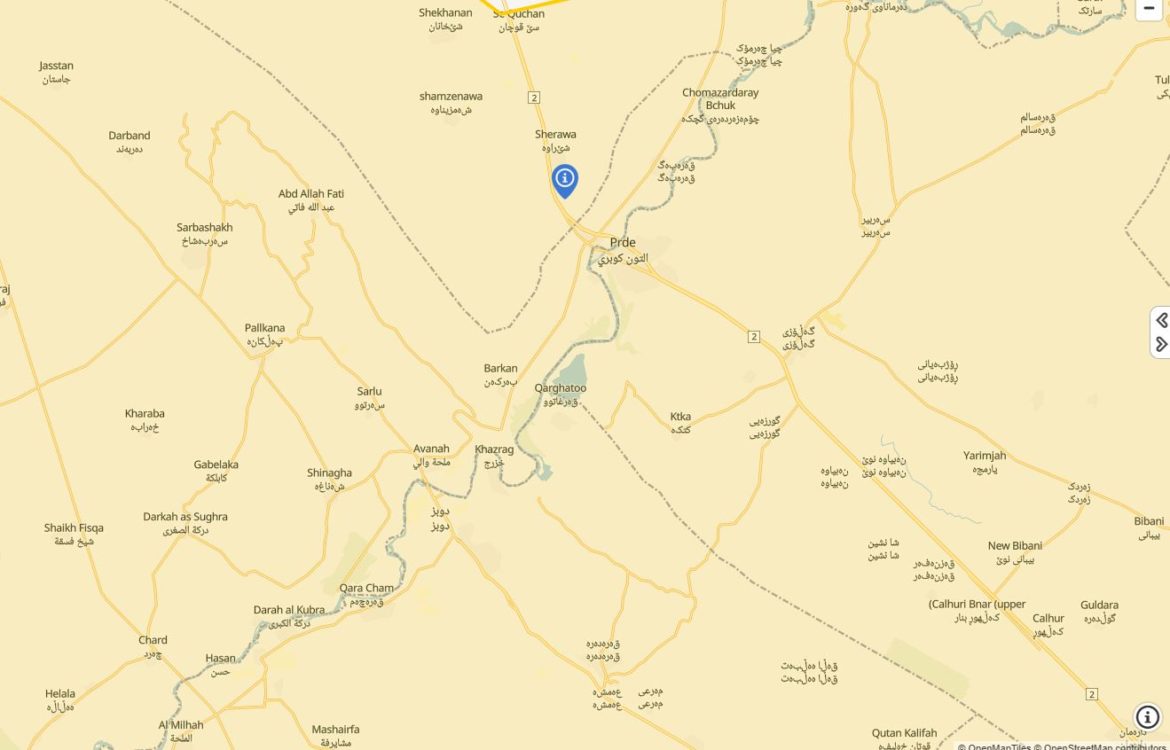1.5K
A weekly brief of events and news occurred in the disputed territories.
Kirkuk
- On June 30, Masrour Barzani, the Prime Minister of the Kurdistan Regional Government (KRG), paid a visit to the Peshmerga forces stationed in Pirdê, north of Kirkuk. Barzani expressed his gratitude to the Peshmergas for their dedication in protecting Kurdistan and their successful efforts in countering hostile plans aimed at the region. He emphasized the significance of this axis in safeguarding the entity of Kurdistan following the betrayal of October 16, 2017. “This was an important axis for protecting Kurdistan’s entity after the betrayal of October 16 [2017],” said Barzani. Barzani expressed his hope for a peaceful resolution to the disputed territories based on Article 140 of the constitution, reaffirming the commitment to” defend and protect” the rights of the Kurds, despite violations by the government in Baghdad. On October 16, 2017, Iranian-backed militias, alongside Iraqi forces, attacked Kurdistani areas but were halted by the Peshmerga forces in Pirdê.
- On June 24, a statement was released by 57 writers, activists, and anti-genocide organizations, expressing their support for Kurdish and Turkmen farmers who have been on strike for nearly a month to protest the occupation of their land by the Iraqi army. The statement highlighted that this was the second time the Iraqi government had taken over the lands of Kurdish and Turkmen farmers in Topzawa village and other areas. “The first instance occurred in 1987 under the Ba’ath regime, which resulted in the displacement of citizens from Topzawa village,” read the statement. Currently, the Iraqi Ministry of Defense intends to build a residential community for army officers on the farmers’ lands, utilizing a former Iraqi law to claim ownership. On June 19, two Kurdish lawmakers filed a lawsuit against the Defense Ministry at the supreme court. Meanwhile, on June 18, the High Committee on Article 140 sent a letter to the Ministry of Agriculture, demanding the return of the lands to Kurdish and Turkmen farmers, citing a 2012 decision by the federal government.
- During an Eid ceremony on June 28, Arshad Salihi, a Turkmen lawmaker and former leader of the Turkish-backed Turkmen Front, criticized the current leadership of the Turkmen Front for neglecting him. Salihi expressed his readiness to lead the Turkmen and participate in the provincial council elections. In response, the Turkmen Front leadership held a press conference indirectly accusing Salihi of dividing the Turkmen and planning to create a separate list for the Turkmen in the upcoming elections, which could weaken the Turkmen vote. The Turkmen Front consists of three factions: Shia members loyal to Iran, ultra-nationalists, including Salihi, and a Sunni Islamist faction currently leading the party.
- As drug use and trade have become significant issues in Kirkuk, particularly since October 16, 2017, the Kirkuk police command announced the opening of a center for drug addicts on June 27. In a press conference, Kawa Gharib, the Kirkuk police commander, urged drug addicts to visit the center to receive necessary treatment, assuring them of legal amnesty. The rehabilitation center was established by the police to address the growing drug addiction problem.
- On June 27, the Federal Intelligence and Investigation Agency reported the arrest of a senior ISIS (Da’esh) terrorist in Kirkuk, responsible for transporting foreign members from Syria to Iraq. During the arrest, a number of fake identity cards and documents were seized, which the terrorist used to travel and evade security agencies. Simultaneously, security forces killed three terrorists near the Tarkalan subdistrict, and airstrikes targeted a Da’esh scout near the Rashad district. In recent weeks, the terrorist organization had carried out several attacks on the security forces, resulting in multiple casualties.
Khanaqin
- On June 25, graduates and students of Garmian University organized a demonstration and blocked the road between Khanaqin and Baghdad. The protesters demanded that the Iraqi government officially recognize their university. Thousands of Kurds residing in the Khanaqin district, who have graduated from Garmian University, have faced unemployment due to the government’s failure to recognize the institution. Garmian University is located in the Kalar district of the Kurdistan Region.
Shingal (Sinjar)
- On June 23, the remains of 39 additional Yazidi victims of the 2014 genocide were transported from Mosul to Shingal and laid to rest in a ceremony. The bodies were handed over to their relatives upon their return to the district. However, there was no official ceremony, and no representative from the local government was present during the transfer of the bodies from Mosul to Sinjar. In a separate development, on June 25, four political parties and several public figures formed the Shingal Organization for Communities and National Forces. The organization’s objective is to review the Sinjar agreement between Baghdad and Erbil and work towards establishing a new administration for the district.

